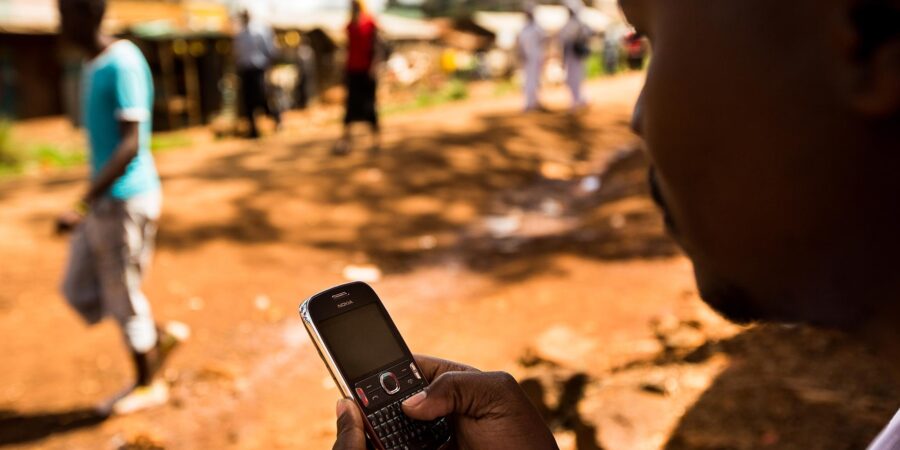Traditionally, food, clothing, air, and shelter are recognized as the fundamental necessities of life. However, with the overwhelming advancement in technology that we are experiencing, we might consider adding mobile phones to the list. While it may not sustain life itself, it has undeniably become an indispensable tool with which we navigate our everyday lives.
Consequently, the global significance of smartphones is monumental. As of 2021, the valuation of the global smartphone market reached an impressive $457.18 billion, with a projection of reaching $792.51 billion by 2029. But, despite the substantial size of the global industry, Africa is not a vibrant player, with the majority of manufacturing occurring in other regions.
Africa’s potential in the market is undeniable, thanks to its abundant resource deposits and expanding consumer base. The continent boasts crucial resources such as cobalt, tin, tantalum, and tungsten, which are vital components in the production of mobile phones. Also, there were 503.14 million smartphone subscriptions in Sub-Saharan Africa in 2021, and the number of smartphone subscriptions in Sub-Saharan Africa is expected to reach 798 million by 2027, based on the steady growth seen in earlier years.
Despite this valuable potential to establish a notable presence in the global industry, the production and assembly of mobile devices remain concentrated in countries such as China, Hong Kong, the United States, Vietnam, Taiwan, etcetera. However, this is not to say countries of the continent are devoid of phone production capabilities.
Over the years, there have been efforts by some African nations like South Africa, the Republic of Congo, and Egypt to develop their local mobile phone manufacturing capabilities and contribute to the global supply chain. The latest in this quest is Kenya.
The Kenyan government recently announced plans to roll out its first batch of locally manufactured smartphones in July. Eliud Owalo, the country’s ICT cabinet secretary explained that “Based on feasibility studies undertaken, we can locally assemble smartphones at a unit cost of about KES5,000 ($40). We have partnered with the private sector to ensure in the next two months, we can roll out our first consignment of low-cost smartphones,”
This aligns with William Ruto’s (Kenyan president) disclosure last year that the country has plans to locally produce what he describes as “the cheapest smartphone in Africa”.
Africa already boasts a minimum of seven ‘made in Africa’ smartphone brands, such as Mara Phones, Onyx Connect, and Mi-Fone, among others. But Transsion Holdings, a Chinese manufacturer of mobile phones known for its popular brands, including Tecno Mobile, Infinix, and itel has established a dominant position in the African market. These brands have gained significant popularity and market share in Africa due to their affordability, targeted marketing strategies, and features designed to meet the specific needs of African consumers.
This indicates that the nation is engaged in a competitive race to outperform established manufacturers, and it is this challenge that the Kenyan government must strive to overcome. Last year, the East African country’s government, under the Finance Act 2022, imposed a 10% excise duty on the importation of cellular phones all to lessen reliance on imported phones. In actuality, raising excise duty is not enough to manufacture, promote and foster the adoption of domestically manufactured phones.
First, one of the easiest ways Kenya can achieve easy manufacturing is to license an existing model from an original design manufacturer (ODM). It is nice to know the country already has plans for this. According to Owalo telecom companies in Kenya, such as Safaricom, Jamii Telecom, and Airtel, have come together to work on achieving this goal despite being competitors.
Another important aspect is to ensure that locally manufactured phones meet international quality standards while maintaining competitive pricing to attract consumers. Kenyan indigenous brands should strive to incorporate appealing features found in high-end phones that are popular among the country’s citizens.
Integrating indigenous languages as optional operating languages in these phones could prove to be a valuable addition, potentially increasing patronage and consumer interest. The availability of competitively priced smartphones meeting international quality standards can improve access to digital connectivity and bridge the digital divide across Kenya and Africa.
In addition, the Kenyan government must prioritize market awareness and promotion by implementing targeted marketing campaigns. These kinds of campaigns help educate consumers about the advantages of purchasing locally manufactured phones, one of which is the positive impact on the domestic economy.
If Kenya successfully establishes efficient and affordable smartphone manufacturing, it could open up the opportunity to export devices to the whole continent, particularly with the growing momentum of the African Continental Free Trade Area (AfCFTA).
It also opens the citizens to an avalanche of opportunities. The increase in mobile phone usage for instance will pave the way for innovative mobile-based solutions like accessing credit, electricity, messaging, insurance, and even facilitating payments for ride-hailing services offered by startups to reach a wider demographic.
The success of indigenous Kenyan phones goes beyond benefiting Kenya alone; it has the potential to positively impact the entire African continent by moving it closer to achieving technological self-reliance,





